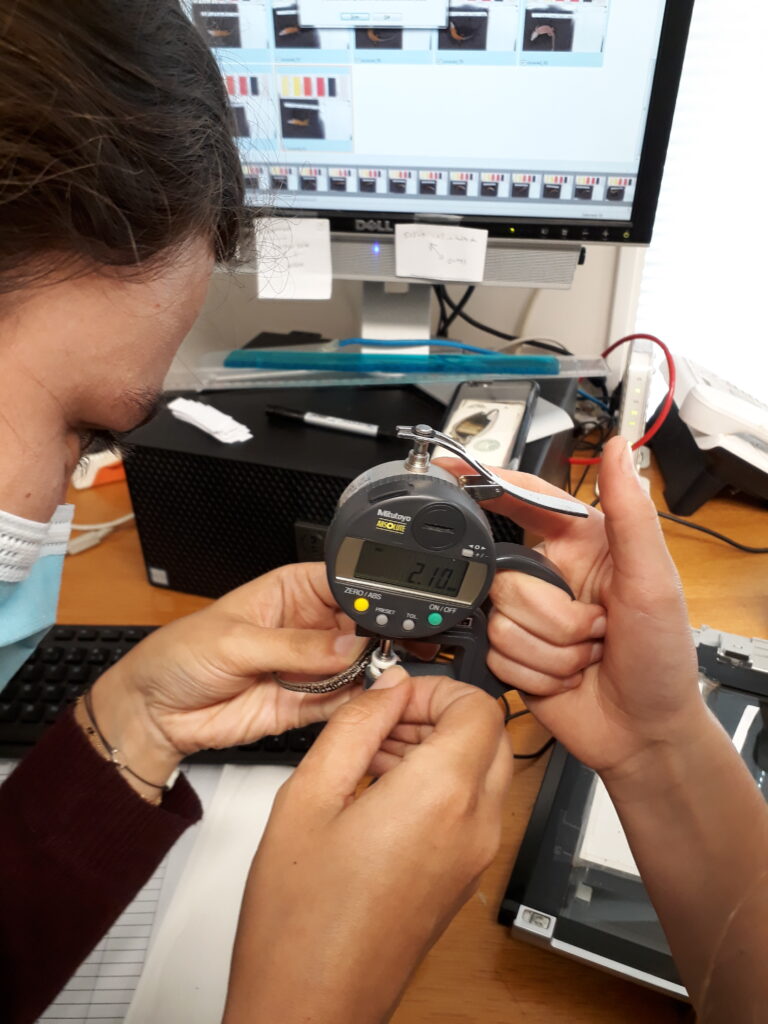In most animals, tight regulation of water balance is critical for short-term survival and chronic disturbance of water balance regulation can further result in loss of performances and ultimately death or sub-optimal reproduction. One way by which animals can recoup water loss from skin evaporation, respiration and feces/urine production is by extracting water from their diet, a phenomenon known as “dietary water intake”. Intuitively, one might expect that animals will search for food, especially high water content diet, when drinking water is limited.Indeed some desert species are able to survive without drinking water by extracting the most water from their diet. Can species living in more temperate climates do the same ?

This is what we were looking for when we designed a clever laboratory experiment with Chloé Chabaud, now post-doctoral student in Tucson, Olivier Lourdais from CNRS Chizé and Georges A. Brusch from California State University at San Marcos. We manipulated food and water availability in the laboratory with adult male common lizards, a species usually found in wet habitats where free standing water is more and more limited to climate change. And contrary to our expectations, prey eating, even from a high quality diet, did not allow lizards to recoup evaporative water loss. Although food intake was critical for body condition maintenance during a chronic water deprivation, plasma osmolality – a marker of physiological dehydration – was similarly high in water deprived lizards with our without food.
Georges A. Brusch
This study adds to a growing number of experiments and field observations suggesting that many carnivorous reptiles have a net dietary water intake rate close to zero either because digestions uses a lot of water or because foraging activities increase water loss rates. This is rarely accounted for in mechanistic models of the energy and water budget of these species, and suggest that many reptiles will be highly dependent on free water drinking when rainfall and moisture conditions are more challenging.
Find out more here: Chabaud , C., Brusch, G. A., Pellerin, A., Lourdais, O. and Le Galliard, J.-F. (2023). Prey consumption does not restore hydration state but mitigates the energetic costs of water deprivation in an insectivorous lizard. J. Exp. Biol. 226 , jeb246129. https://doi.org/10.1242/jeb.246129
And the Inside JEB summary: https://doi.org/10.1242/jeb.246568
